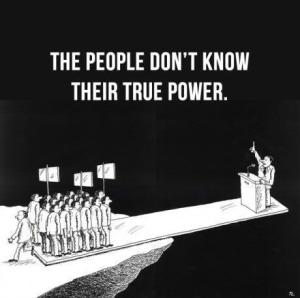It’s always easier to sit back and be an “armchair jockey” Or is it? The responsibilities of others in the public eye seem to differ drastically when we change our perspective. Let’s suppose for a moment that the perspective never changes. What if the person sitting back and doing nothing was actually in charge? Or better yet, what if that person actually gets tired of the way things are going and gets up and does something about? It takes a great deal of dissatisfaction to get motivated to create change! I present you with these two perspectives. If you accept either perspective, you could be The Mayor.
 Over ten years ago, the Dodge Truck branded the new Ram as the Mayor. The marketing point was that something new was available–something that had evolved from a tradition of strength and durability. The industry soon learned that simply labeling something tough was meaningless in the eyes of the consumers. The Mayor was no different than any of the others. Depending how you dressed it up or presented it, perception would be sculpted by the beholders.
Over ten years ago, the Dodge Truck branded the new Ram as the Mayor. The marketing point was that something new was available–something that had evolved from a tradition of strength and durability. The industry soon learned that simply labeling something tough was meaningless in the eyes of the consumers. The Mayor was no different than any of the others. Depending how you dressed it up or presented it, perception would be sculpted by the beholders.
When we take a look at government, especially township government, there is a hierarchy of power. In larger cities an alderman is elected to represent the needs of the smaller communities in the municipality. An aldermen, in turn, is a liaison between the neighborhoods and the city council. Each city councilman is elected by the residents of the city. A separate election is held for the Mayor. In townships like Fairfield (in in Cumberland County, New Jersey), committeemen are elected. So few people want the responsibility that the party leaders must search for candidates who will best serve the interest of the party. It may go without saying that the individuals who control the political party, are uniquely positioned to serve the township in a way they see fit.
Legacies can be shaped if the power players can strategize and defeat any opposing candidates. Everyone knows each other in small towns anyway; so party leaders don’t need to dig too deep. Finding harmful information that can be shaped into character flaws is one of the easiest ways to run a campaign. Simply put, instead of making a candidate sparkle, just sling some mud. This tactic requires no tact. Student council are more dignified. To build a legacy, campaign managers need to work with their candidate. A relationship is built on trust and a common goal to establish a leadership position that will last several terms. Otherwise, yesterday’s aspirations coupled with today’s accomplishments will never lead to the successful completion of tomorrow’s projects. A legacy is lasting and in some cases passed down from generation to generation. We see this nationally with the Bush’s and locally with the Pierces. Again, building a legacy based on name-recognition requires far less effort. The public already knows that name and the track record.
Once elected to office, a separate selection must be made. Who will be The Mayor? The role of the mayor in township government is to facilitate. He or She sets the agenda. Meetings are conducted to ensure that the public interest is met. Follow-up with the administrator confirms that the decisions made be the township committee are completed in a timely manner. A level of decorum is maintained. Only then can the needs of the community be met. There will be times that these objectives can not be met without opposition. This is the reason for a democratic government. Each committeeman (or committeewoman) has a voice. They were elected by the people to represent the people who elected them. In many cases, the voters elected individuals who are competent enough to make important decisions without constant input from the constituency. Sometimes, however, there are entire groups of people who are consistently underrepresented because of where they live, their inability to get their neighbors to vote, or because of their political views.
The Mayor is not always directly elected by the people. This person who is supposed to facilitate and direct the committee is selected by the other members of the committee. This often overlooked fact makes voting for the committee even more important. Voting for the wrong committeeman lends itself to having a Mayor who will not serve the community.
So who is your Mayor? It’s important to identify who is making the decisions and why. When a mayor is not leading nor facilitating in a manor that demonstrates progress, we must ask why not. What drives our mayor and the township committee is as important as the results that we expect to see.
Someone once told me, “You could be the Mayor…” But recognizing the responsibility, the rigor, and the reliability that is required of position, I declined. It’s a full time job for one person, but could be a part-time job if the committee works together to accomplish their goals. They must collectively determine what will benefit the township.
The current mayor once asked me if I thought it bizarre that I hadn’t been asked by the people that I supported. He was suggesting that my support of them was not reciprocated. I saw this as an opportunity to share with him that he wasn’t insightful enough to see for himself. I had been asked, in fact! I believe that the residents deserve far more than our committeemen or committeewoman can provide. Without a general consensus, the committee can not move forward. He asked me what kind of Mayor did I want. I responded, “Can I get a Michael Nutter type of mayor, please?” The Mayor warned me that I’d better be careful what I asked for, and that educated Mayors are too costly. Our conversation didn’t last too much longer after that. And now I can’t get the Mayor or his Deputy to return as much as a text.
You Could Be the Mayor…if you were willing to lead people who longed for change. This picture says one word more than this essay.









